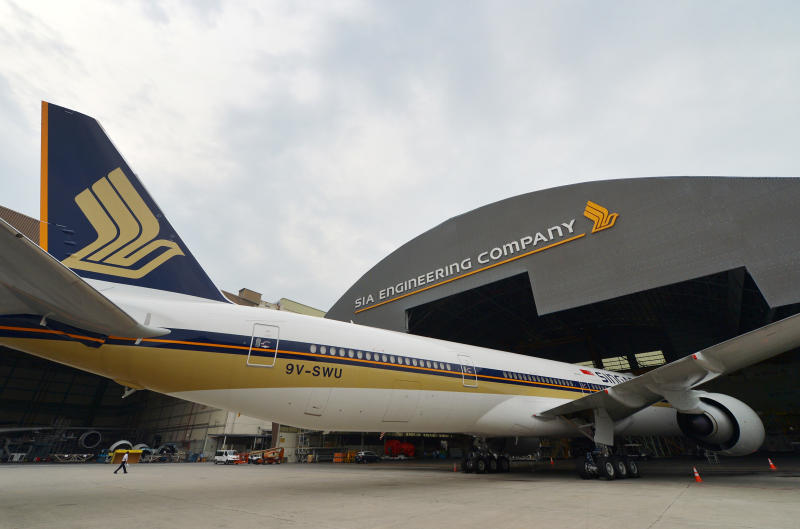Parliament: NTUC partnering companies to set up training committees to upgrade worker skills
Sign up now: Get ST's newsletters delivered to your inbox

The companies are from sectors ranging from port engineering to aviation, and include SIA Engineering Company, as well as in-flight catering service provider Sats.
PHOTO: ST FILE
Seow Bei Yi
Follow topic:
SINGAPORE - The National Trades Union Congress (NTUC) has taken steps to set up "training committees" that identify the training and skills that workers will need to keep up with industry transformation.
NTUC secretary-general Ng Chee Meng said the labour movement has worked with about 10 companies in a pilot project to set up these committees, which comprise management staff and union leaders, to help nurture what he termed "Worker 4.0".
"For Industry 4.0 to be actualised, we need our workers to transform in parallel with their companies and industries because there can be no Industry 4.0 without the worker," Mr Ng, who is also MP for Pasir Ris-Punggol GRC, said. "In the past few months, we worked with companies and sector agencies on a study to produce archetypes of Worker 4.0 in different industries."
These companies are from sectors ranging from port engineering to aviation and include SIA Engineering Company as well as in-flight catering service provider Sats.
Together with NTUC, companies are working out future versions or archetypes of their employees - and the skills gap and training required for their current workforce.
"Our intention is to help our workers visualise the potential of Industry 4.0 for their companies, and for... their careers," said Mr Ng.
The partnerships cover about 64,000 workers and the plan is to expand this collaboration to all of NTUC's unionised companies, said Mr Ng on the first day of the Budget debate on Tuesday (Feb 26).
He cited the example of PSA senior mechanical engineer Ng Hwee Sheng, who took on a larger role managing automated and intelligent systems at the port operator after completing a year-long systems engineering course at the Singapore Institute of Technology (SIT). Mr Ng added that with examples of workers who have moved towards Worker 4.0, the hope is that more will do so and take personal responsibility in upgrading their skills.
"The training committee can chart out skills and competency requirements, put in place training programmes such as PSA's one-year systems engineering course at SIT, schedule worker training to minimise downtime on ongoing operations," he said.
The committees can also map out career prospects and tag these improvements to wage increments, he suggested.
Mr Ng also said the labour movement is aware that some workers will feel displaced by rapid changes, adding that the NTUC will do its best to support them.
He added that with the economy transforming rapidly, NTUC and its unions must "move upstream to participate in Government and industry-led transformation".
Mr Ng was among several MPs and labour movement leaders who gave suggestions and updates on how workers, from mature employees to low-income workers and freelancers, can be supported.
Dr Koh Poh Koon, deputy secretary-general of NTUC, said companies must provide better training for older workers to improve their skills in using technology.
With workers and companies unsure of where to start on training, or what training they need, Dr Koh (Ang Mo Kio GRC) added that NTUC will work with unions, industry partners, government agencies and institutes of higher learning to simplify the training space.
Lower-wage professionals, managers, executives and technicians (PMETs) who earn between $2,500 and $3,500 a month can also benefit from the Progressive Wage Model, which helps to raise wages by upgrading skills and improving productivity, said Mr Patrick Tay (West Coast GRC).
"It is timely to scale these efforts on a national level and extend the PWM to lower-wage PMETs to provide for their progression and upward labour mobility," said Mr Tay.
Mr Melvin Yong (Tanjong Pagar GRC) suggested ways to boost workplace safety and health, such as compulsory yearly health check-ups for employees to help detect and prevent chronic occupational diseases.
There could also be differentiated insurance premiums for companies, where those who face many claims for similar incidents will have to pay higher premiums, he added.

